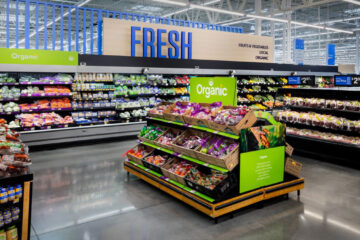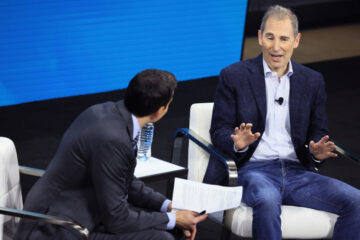A major U.S. provider of coffee to restaurants and hotels that’s going public via SPAC counts on technology to help small coffee farmers grow stronger.
Coffee seems to be one of the orders of the day on Wall Street, what with Starbucks (SBUX) – Get Starbucks Corporation Report fighting off a union drive and Black Rifle Coffee (BRCC) – Get BRC Inc Class A Report — which some media outlets have dubbed the Starbucks of the right wing — going public.
That’s major coffee retail: packaged coffee to take home, fresh lattes to schmooze over in stores with friends or a book, and wearables and other stuff adorned with logos so you and I can pay for the privilege of advertising for our favorite coffee bars.
Starbucks, Dunkin’, Peet’s and Tim Hortons (QSR) – Get Restaurant Brands International Inc Report have thousands of such places and Black Rifle aspires to similar prominence.
Now comes to the public markets a company that serves at the wholesale level — retailers, restaurants, convenience stores and hotels and hospitality. The company provides coffee and tea, flavors and ingredients, as well as services including coffee sourcing, product development, roasting, packaging and distribution.
And it’s doing that on what it calls a sustainable basis, acquiring coffee and tea from 1.5 million small-holder farmers in 35 countries and managing its own supply chain through digitally traceable paths from the source farmers through finished consumer packaging.
Westrock Coffee: Ideals and Methods
Westrock Coffee Holdings of Little Rock, Ark., said on Monday that it was going public via a special purpose acquisition company, Riverview Acquisition RVAC.
SPACs, or blank-check companies, are formed for the express purpose of finding and merging with an operating partner. The idea is to speed the operating company to the public markets and avoid the extended process of a traditional initial public offering.
The company, which started operating in 2009 in Rwanda, says in its investor presentation that it aims “to provide small-holder farmers and their families in developing countries the ability to advance their quality of life and economic status.”
Westrock is led by Chief Executive Scott Ford, who previously was president and CEO of Alltel Wireless.
Ford said in the company statement that “[we] started Westrock Coffee when we saw the need for coffee farmers in Rwanda to earn a living wage and realized that a new business model for the industry could enable this outcome while being self-sustaining and unreliant on the vagaries of charity or consumer-price premiums.”
The company says it has more than 50 people in 10 countries who are tasked with coordinating “the physical delivery of [traceable] products to Westrock Coffee and hundreds of other customers.”
Westrock says that it uses IBM’s (IBM) – Get International Business Machines Corporation Report Food Trust blockchain platform and other proprietary technologies “to link anonymous disjointed supply chains into transparent connected systems.” The method enables Westrock’s customers to see “the actionable results of their purchases” by scanning QR codes.
The Westrock-Riverview Deal and Financials
The company says in its statement that it has secured $250 million of stock-purchase commitments at $10 a share from private investors including Brad Martin, chairman and CEO of Riverview. And it has received a commitment for a $300 million credit line from Wells Fargo.
At closing Westrock expects to have $120 million of cash on the balance sheet.
Westrock said it expected to trade on Nasdaq under the symbol WEST.
The company says it is the largest by volume provider of customized and private-label coffee and tea to restaurants in the U.S. It sees particular growth opportunities in Europe, Asia-Pacific and the Mideast.
Westrock is growing rapidly, having posted 2021 revenue of $698 million, up 26% from $551 million in 2020. It’s profitable based on adjusted earnings before interest, taxes, depreciation and amortization. For 2021 that figure was $47 million, up 38% from $34 million a year earlier.
Beginning this year, the company sees revenue growing at an annual rate of 21%, reaching $1.25 billion in 2024. It sees adjusted Ebitda Rising at a rate of 38% a year, to $123 million in 2024.
The boards of Westrock and Riverview have approved the terms of the deal. Subject to conditions including a vote of the shareholders of Riverview, the deal is expected to close by the end of the third quarter.


